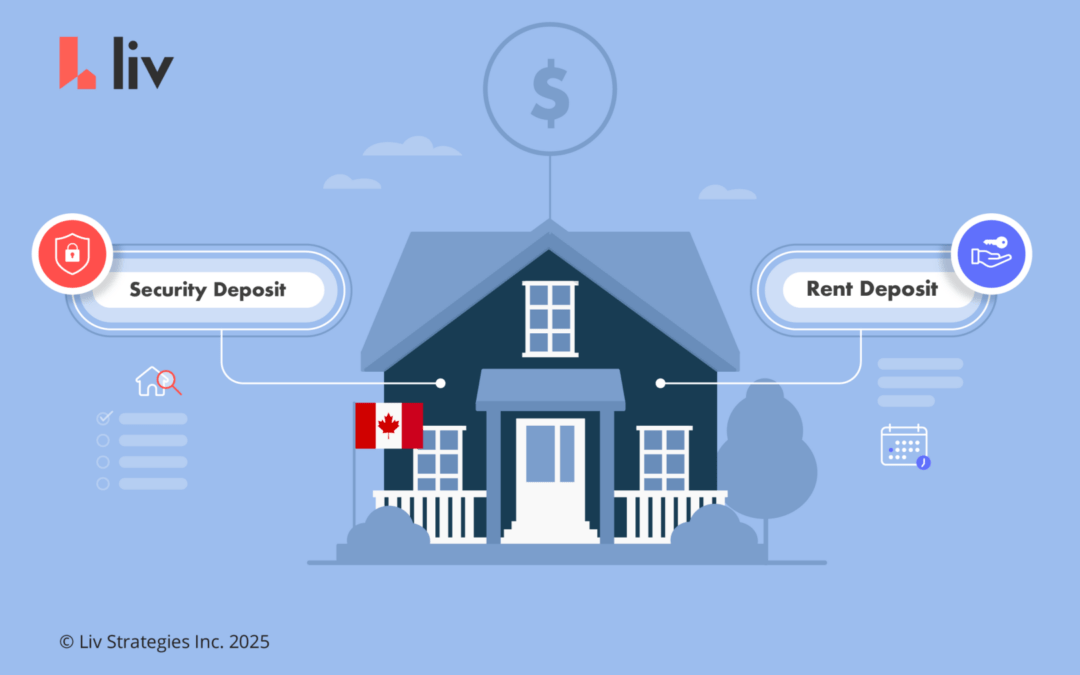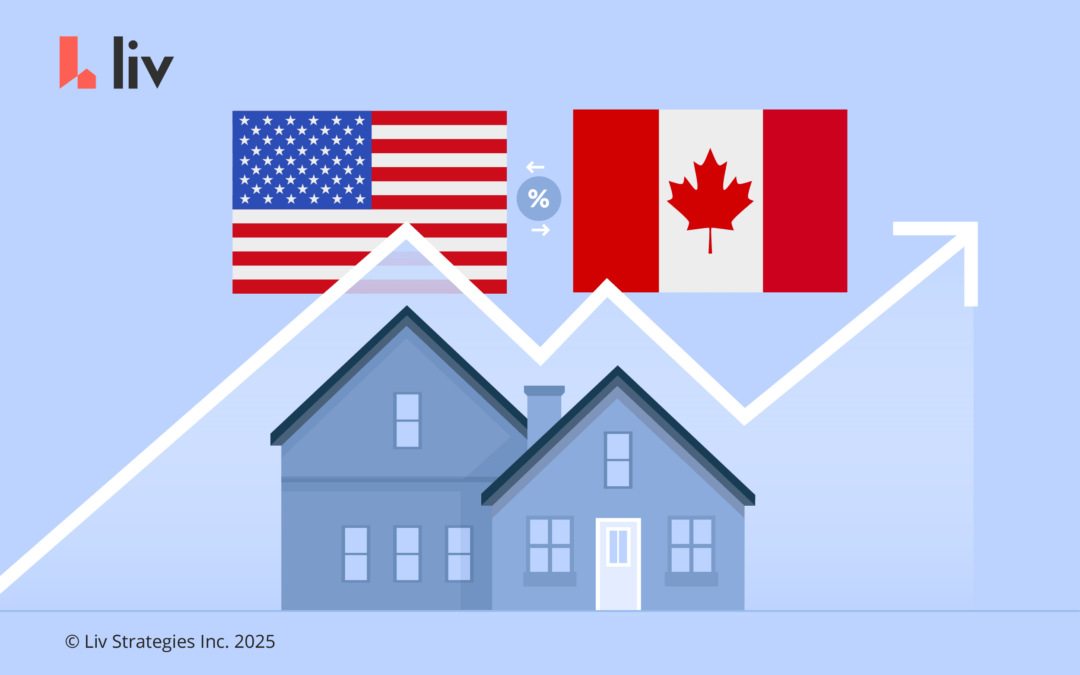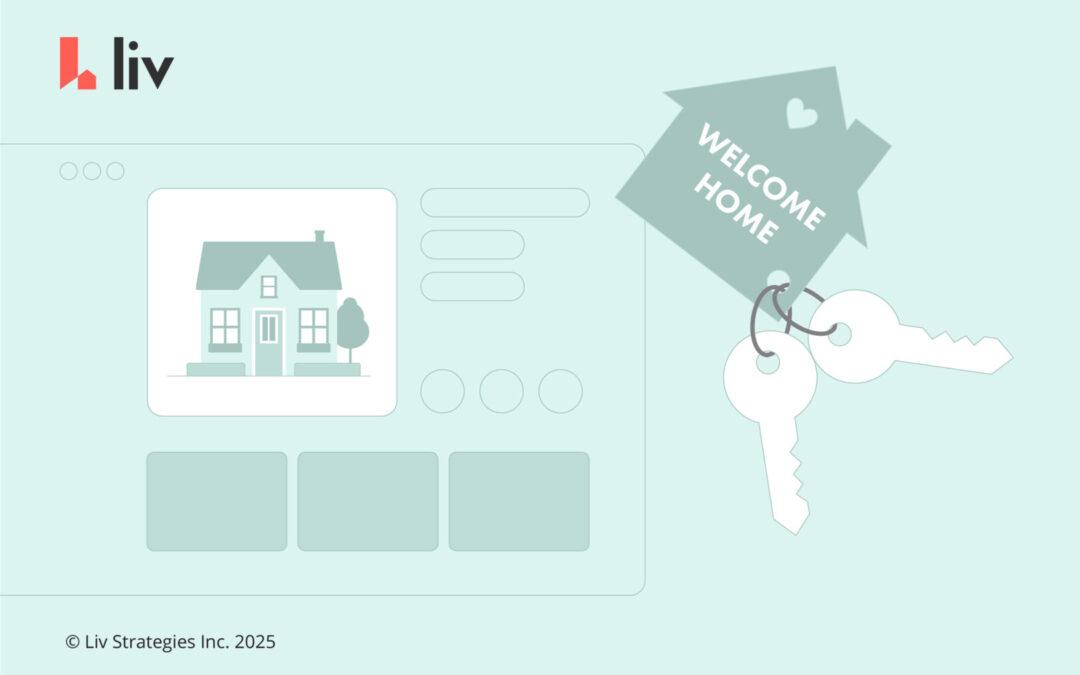Do you take advantage of all the deductions available to you as a B.C. landlord? When you own a rental property, you are legally obligated to report all rental revenue on the Statement of Real Estate Rentals schedule on your personal tax return. Thankfully, you are also able to deduct a number of landlord expenses from your gross rental revenue and then pay tax only on the amount remaining. We’re liv.rent, and we help landlords manage their properties and find the best tenants possible. We created this guide to help ensure you’re fully leveraging the tax benefits legally available to you. Here’s a list of the top allowable deductions for B.C. landlords.
Types of tax deductions for B.C. landlords
Download The Landlord’s Guide To Property Tax Deductions
The ultimate tax guide for landlords in Canada. Everything you need to know about taxes, and how to get a bigger return.
It’s important to note that rental income tax deductions are the same for all of Canada’s provinces and territories. The following is a list of tax deductions that are available to all Canadian landlords, as well as our tips on how and when you should claim each.
1. Home insurance
You can deduct the insurance premiums you pay for rental insurance. Claim the full amount if your rental property is separate from your primary residence or claim the appropriate portion of it if it is part of your primary residence.
2. Interest
- You can deduct interest on money borrowed for construction, repairs, upgrades and renovations to improve your rental property.
- You can deduct your mortgage interest, however, you cannot claim a deduction on the interest you pay on mortgage principal if you borrowed money to purchase the rental property.
- If borrowed money is used for rental property (i.e. you incur new debt on your principal residence to buy rental property), the interest is tax-deductible against the rental income even if the debt is not on that particular property
- If you refinance a mortgage on a rental property for personal purposes, the interest on the additional debt is not tax-deductible.
3. Costs
You can deduct some of the costs related to the purchase of a rental property like closing costs, condo fees, fees related to obtaining a mortgage, and fees paid to your real estate lawyer.
A small note on house flipping: CRA pays close attention to investors who buy and sell properties quickly. If the intention to acquire a property is not to earn rental income but rather to earn a profit, you will risk paying twice as much tax on that profit. While rental property income is taxed as capital gains, 50% of the gains are tax-free; if however, the property is flipped, the profit will be taxed as business income which is fully taxable.
4. Property taxes
You can deduct the property taxes you paid to your municipality for the current year (e.g. Vancouver, Richmond, North Vancouver) If your rental property is within your primary residence (e.g. basement suite,) deduct the correct proportion only.
5. Utility fees
Deduct the full amount of your utility payments for a separate rental property (or correct percentage for property that is part of your principal residence.) Utilities include heat, hydro, water, cable and internet.
Read more: Setting Up Utilities
6. Property management
You can deduct salaries paid to property managers, superintendents, maintenance personnel (gardeners, painters etc.) and others you employ to care for your property.
Note: You cannot deduct the value of your own services.
Read more: Do I Need A Property Manager?
7. Professional fees
Be sure to deduct fees like those paid for legal services used to prepare leases, accounting fees and collection agency fees.
8. Travel
If you need to travel to collect rents and oversee renovations and repairs, for example, you can deduct the costs associated with getting to your rental property (gas, airplane ticket etc.). You cannot deduct hotel and food costs.
9. Advertising
You can deduct the cost of advertising your rental properties as well as finders’ fees if you hired someone to secure a tenant. On liv.rent, you can use our featured listings to supercharge the reach of your listing and get your units filled fast.
10. Vehicle expenses
If you own one rental property you can deduct vehicle expenses if the property is in the general area of your principal residence and you do most of the repairs and maintenance. Reasonable expenses include fuel costs, maintenance and repairs, insurance, licence and registration, interest on car loans, leasing costs. If you own more than one rental property, you can also deduct costs associated with travel to your rental property (see #8) to collect rents, supervise renovations and repairs and manage your property.
Landlords & Property Managers
Advertise your rental for free on liv.rent – an all-in-one rental platform.
How to claim rental property tax deductions
Thankfully, it’s easy for landlords and rental property owners to claim all of the deductions listed above. In fact, they’re included right within Form T776, which is the Statement of Real Estate Rentals, and is a form every landlord has to familiarize themselves with.
A list of potential expenses can be found on page 2 of this form, under Part 4 – Expenses. You’ll be prompted to specify the Total Expenses for each, as well as the Personal Portion. After adding these amounts up, you can calculate your total deductible expenses by subtracting the personal portion from your total expenses.
If you’re having trouble navigating your rental income taxes, be sure to consult with an accountant or tax expert to get more clarity. We’ve also made a video on the subject in collaboration with a Canadian Rental Tax Expert, which you can check out here to learn more.
>> Recommended Reading: VIDEO: Landlord’s Guide To Property Tax Deductions
Rental income deductions in B.C. vs. the rest of Canada
Generally, both taxes and deductions function the same across Canadian provinces & territories, so landlords need only get acquainted with federal rules and regulations before going to file their taxes. It’s worth noting that all of the deductions here apply to every rental property in Canada, and there aren’t any B.C. exclusive expenses or deductions available.
For individual landlords, rental income is factored in as regular income and taxed according to your own marginal tax rate and thus also doesn’t vary by province. For corporations or businesses, each province has its own unique corporate income tax on top of the Canada-wide 38% tax on rental income for corporations. In B.C., corporations making rental income will have to pay an additional 12% in provincial tax.
Frequently Asked Questions: Rental tax deductions in B.C.
Is it worth claiming rental income deductions?
In short, yes! Depending on how much you’re making, rental income can be taxed heavily in Canada, so landlords would do well to take advantage of the various expense deductions available to them. The majority of these deductions are for services and expenses landlords frequently use, so capitalizing on these and reducing your taxes at year’s end is always a wise move.
How much are you taxed on rental income in Canada?
As specified above, Canadian landlords are subject to income tax based on their own marginal tax rate. Corporations and businesses on the other hand must pay a rate of 38% in taxes on their rental income, in addition to a Provincial corporate income tax that varies by province. In B.C., this number is 12.0%.
How do tax deductions work?
Tax deductions are included right within the applicable tax form (Form T776, in this case), and simply need to be filled out alongside your income as a way of calculating the gross sum.
How do I avoid paying tax on rental income?
Canadians earning money from their rental property are obligated to report their income correctly and in full each year, so in that regard, you absolutely cannot avoid paying tax on your rental income.
You can, however, reduce the amount you end up paying by taking full advantage of the deductibles available to you.
What happens if you don't declare rental income?
If you neglect to claim your rental income during tax season, you run the risk of facing fines, criminal prosecution, or in the best case, a hefty tax bill later on.
Do I need to declare rental income if I'm not making a profit on it?
In general, if you’re renting your property below market value, whether to a friend or a relative, or whatever the situation may be, you still need to report your rental income. This does get tricky though, as there are many intricacies to these situations worth looking into.
In one example, if you’re charging a family member a small amount of money for general upkeep, or to cover utilities or groceries, this amount does not need to be reported on your income. At the same time, you cannot claim a rental loss for this arrangement and are unable to deduct any associated expenses.
Additional resources for landlords
- Homeowner’s Guide to B.C. Taxes: Property Tax, Empty Homes & Speculation Tax, GST and PST
- Vancouver’s Empty Home Tax Explained
- The Complete User Guide To liv.rent For Landlords & Property Managers

Rethink The Way You Rent
Not on liv.rent yet? Experience the ease of digital applications & contracts, verified tenants & landlords, virtual tours and more – all on one platform. Sign up for free or download the app.
Subscribe to receive the latest tenant & landlord tips and get notified about changes in the Canadian rental market.
>> Stay up-to-date on the average rent in Vancouver, Toronto and Montreal: Rent Reports.



0 Comments